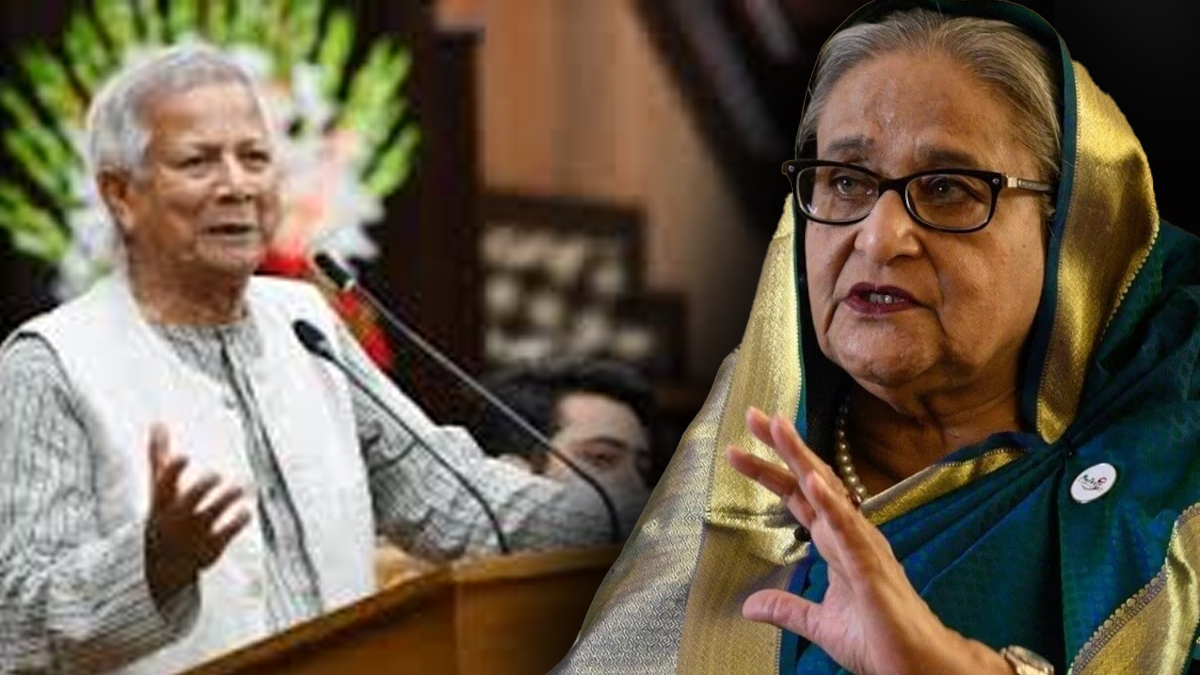
In a virtual address from New York, the former Prime Minister condemns attacks on minority communities and blames an interim government for escalating violence.
AB News Desk, New Delhi: In a recent virtual meeting held in New York, Sheikh Hasina, the former Prime Minister of Bangladesh, unequivocally accused Muhammad Yunus and his interim government of orchestrating what she termed as “genocide” against minority communities in the country. During her address, Hasina condemned the violence targeting minority populations, places of worship, and the ISKCON religious organization, calling it a calculated scheme led by Yunus.
“Genocide is currently unfolding in Bangladesh under Yunus’s plans,” she stated, emphasizing the role of student coordinators in what she described as a meticulously crafted plot against religious minorities. Hasina also cited remarks from Tarique Rahman, the leader of the opposition and son of former Prime Minister Khaleda Zia, who allegedly stated from London that the government would not survive if the killings continued.
Hasina’s speech came in the wake of her resignation from the Prime Minister’s office on August 5, following widespread protests stemming from an anti-discrimination student movement. She noted her concerns about the safety of minority groups, questioning the ongoing attacks on temples and churches. “Why are minorities being attacked? Why are places of worship under siege?” she asked, echoing sentiments aligned with those recently expressed by Donald Trump after his election victory.
Explaining her departure to Delhi, Hasina reframed her resignation as an act of compassion rather than a desire to cling to power. “I did not want genocide. If I had wanted to stay in power, I would have acted differently. Faced with indiscriminate killings, I decided it was time to go,” she explained. Hasina also revealed that there had been plans to assassinate her, hinting that a violent confrontation could have resulted in numerous deaths at her official residence if her security hadn’t intervened.
As Bangladesh grapples with rising violence against its minority communities, Hasina’s allegations have raised significant concerns both domestically and internationally, putting the spotlight on the political unrest and humanitarian issues facing the nation.


